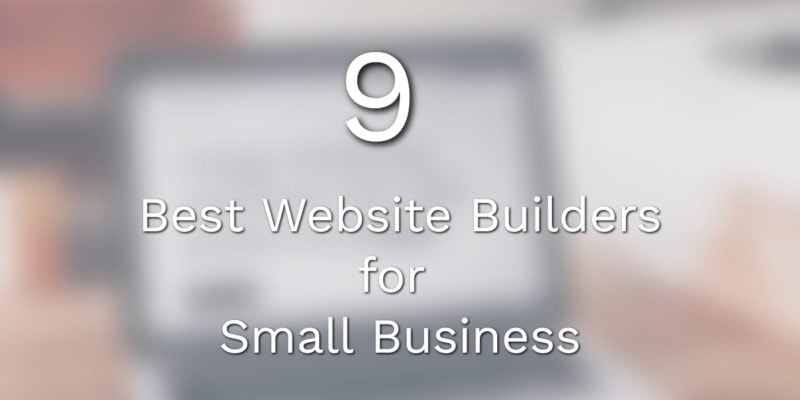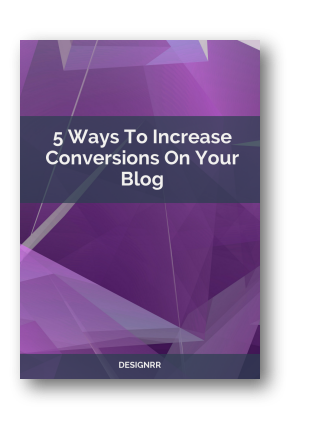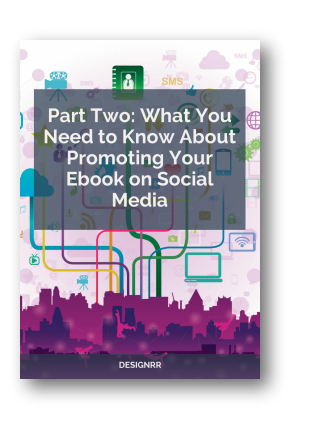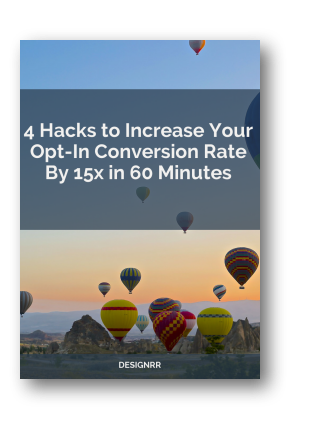Think of choosing a website builder like selecting the perfect toolbox for your trade. Just as a carpenter needs reliable tools that work together seamlessly, your small business needs a website builder that combines ease of use, powerful features, and dependable performance—all without requiring a computer science degree to operate.
The reality is stark: 92% of small business owners say a website is essential for brand authority, yet 27% still don’t have one. Meanwhile, businesses with professional websites earn 50% more revenue than those without. The difference often comes down to choosing the right website builder.
What Is a Website Builder?
A website builder is a software platform that lets you create, design, and publish websites without writing code. Traditional web development requires hiring programmers and designers, but website builders provide everything you need in one package: hosting, templates, editing tools, and technical maintenance.
Modern website builders have evolved into comprehensive business platforms. They handle your entire online presence, from your initial website design to processing customer payments and managing your digital marketing campaigns.
Essential Features Every Small Business Website Builder Must Have
Not all website builders are created equal. Here’s what separates the best from the rest:
Drag-and-Drop Editor
You should be able to move elements around your website as easily as rearranging furniture in a room. The best builders let you add text, images, buttons, and entire sections without touching a single line of code.
Mobile Responsiveness
With over 62% of web traffic coming from mobile devices, your website must look and function perfectly on smartphones and tablets. This isn’t optional—it’s essential for survival.
Built-in SEO Tools
Search engine optimization determines whether customers can find your business online. The best builders include keyword guidance, meta tag editing, and automatic sitemap generation.
E-commerce Capabilities
Even if you’re not selling online today, you might need to tomorrow. The best builders include payment processing, product catalogs, and inventory management as standard features.
Reliable Hosting and Security
Your builder should handle all the technical backend: server management, security updates, SSL certificates, and site backups. You focus on your business; they handle the technology.
Customer Support
When something goes wrong (and it will), you need help from real humans who understand both the platform and small business challenges.
Scalability
Your website should grow with your business. Choose a builder that offers advanced features and higher performance tiers as your needs expand.
The 9 Best Website Builders for Small Business in 2025
Based on extensive testing and real-world performance data, here are the platforms that consistently deliver results for small businesses:
1. Wix: The All-Around Champion
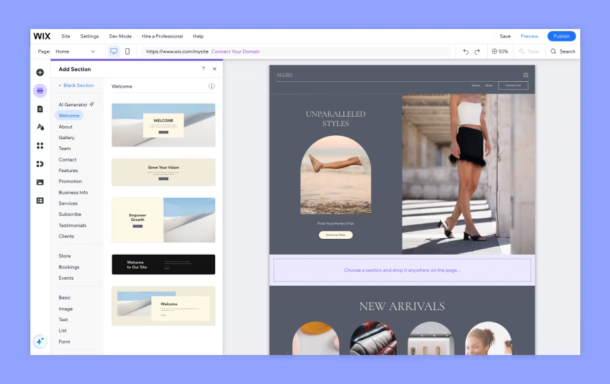
Why it’s the best overall choice: Wix commands a 45% market share among dedicated website builders. Extensive testing shows it offers the most comprehensive feature set without overwhelming beginners.
Key strengths:
- 900+ professional templates covering every industry imaginable
- Advanced AI tools including SEO guidance powered by Semrush
- Complete e-commerce solution supporting up to 50,000 products
- Integrated business tools: booking systems, customer management, email marketing
- App marketplace with 300+ add-ons for specialized functionality
Pricing: $16-$159/month depending on features needed
Best for: Growing businesses that want everything in one platform and room to scale
2. Hostinger: The Budget Powerhouse
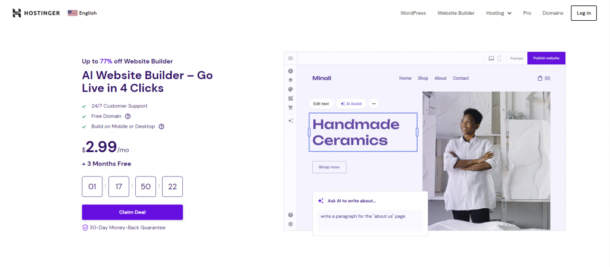
Why it’s the best value: Starting at just $2.99/month, Hostinger proves that affordable can still mean professional-grade. Their AI-powered tools rival much more expensive platforms.
Key strengths:
- AI website builder creates functional sites in minutes
- Fastest loading speeds in independent testing
- Comprehensive AI toolkit: content generation, SEO optimization, image creation
- Print-on-demand integration through Printful partnership
- 24/7 customer support despite budget pricing
Pricing: $2.99-$9.99/month
Best for: New businesses, side hustles, and anyone who needs to launch quickly on a tight budget
3. Shopify: The E-commerce Specialist
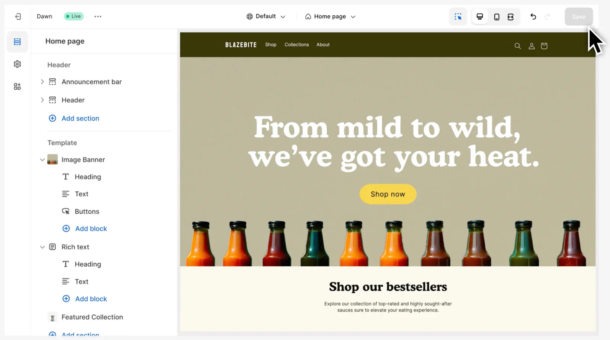
Why it’s the best for online selling: Shopify powers 26% of all e-commerce websites because businesses need specialized tools for product sales, and Shopify delivers them better than anyone else.
Key strengths:
- Unmatched e-commerce features: inventory management, shipping automation, tax calculation
- Scalable infrastructure handles traffic spikes without crashing
- Multi-channel selling across social media, marketplaces, and physical locations
- Extensive app ecosystem with 8,000+ business-specific add-ons
- Built-in payment processing with competitive transaction rates
Pricing: $29-$299/month (first 3 months for $1/month)
Best for: Businesses focused on online sales with significant product catalogs
4. Squarespace: The Design Leader
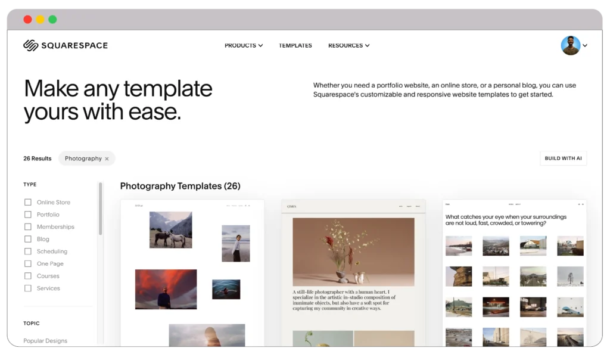
Why it’s the best for visual appeal: Squarespace templates consistently win design awards and create websites that appear professionally crafted, even when built by beginners.
Key strengths:
- Award-winning templates particularly strong for creative industries
- Built-in blogging platform with advanced content management
- Acuity Scheduling integration perfect for service-based businesses
- Advanced analytics providing deeper insights than most platforms
- Portfolio features that showcase work beautifully
Pricing: $16-$49/month
Best for: Creative professionals, photographers, consultants, and design-conscious businesses
5. GoDaddy: The Business-First Platform
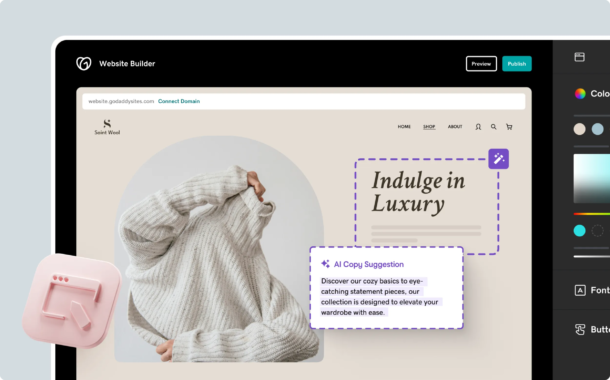
Why it’s the best for traditional small businesses: GoDaddy combines website building with comprehensive business services. The platform offers everything from domain registration to marketing automation under one roof.
Key strengths:
- AI-powered Airo tool for automated marketing and business optimization
- Integrated business services: email marketing, social media management, SEO tools
- Expert support with phone access to real humans
- Marketing Center tracks which strategies actually drive results
- Quick setup process gets businesses online in hours, not days
Pricing: $9.99-$24.99/month
Best for: Traditional small businesses that want expert guidance and proven marketing tools
6. WordPress.com: The Content Powerhouse
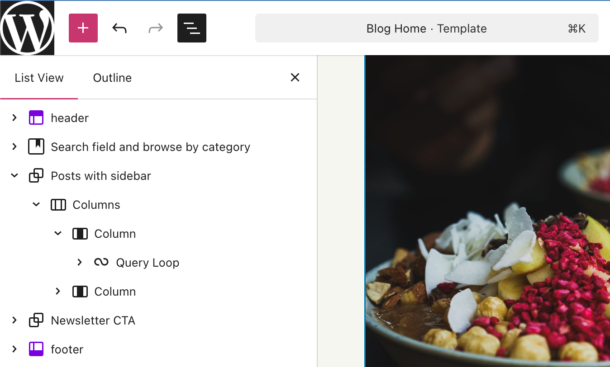
Why it’s the best for content-heavy sites: WordPress powers 43% of all websites on the internet, making it the most popular platform worldwide. The .com version offers managed hosting combined with WordPress’s full power.
Key strengths:
- Unlimited customization through themes and plugins
- Superior blogging capabilities with advanced content management
- SEO advantages built into the platform architecture
- Massive community with endless resources and support
- Scalability from simple blogs to complex business sites
Pricing: Free-$70/month depending on features
Best for: Businesses that prioritize content marketing, blogging, and long-term customization
7. Weebly: The Simplicity Champion
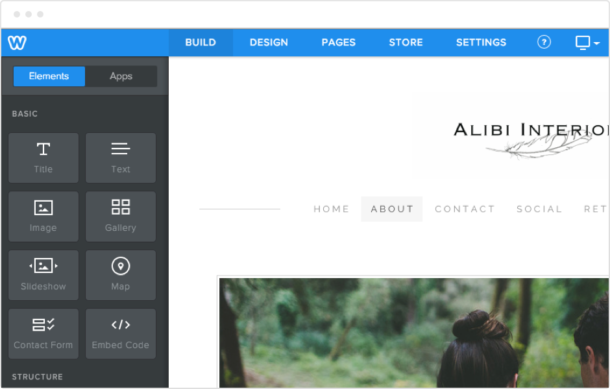
Why it’s the best for absolute beginners: Weebly focuses on making website creation as simple as possible without sacrificing essential business features.
Key strengths:
- Intuitive drag-and-drop editor that anyone can master quickly
- E-commerce capabilities with Square integration (standard payment processing fees apply)
- Automatic mobile optimization ensures sites work on all devices
- Built-in SEO tools help with search engine visibility
- Square integration for seamless online and offline sales
Pricing: Free-$29/month
Best for: Complete beginners who want to get online quickly with minimal complexity
8. Bigcommerce: The Enterprise-Ready Solution
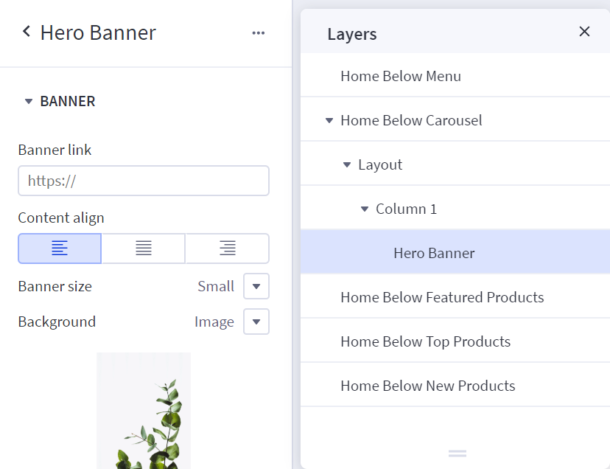
Why it’s the best for ambitious growth: BigCommerce is built for businesses that plan to scale significantly. The platform offers enterprise-level features at small business prices.
Key strengths:
- No transaction fees unlike many competitors
- Advanced e-commerce features: multi-storefront management, complex product options
- Built-in marketing tools: abandoned cart recovery, customer segmentation
- API-first architecture allows extensive customization and integrations
- Headless commerce capabilities for advanced technical implementations
Pricing: $39-$400/month
Best for: Fast-growing businesses with complex e-commerce needs and technical resources
9. Webflow: The Designer’s Dream
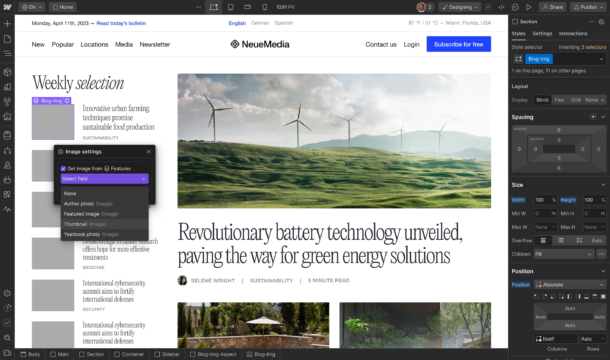
Why it’s the best for custom design: Webflow bridges the gap between drag-and-drop builders and custom coding. The platform offers professional-grade design control without requiring programming knowledge.
Key strengths:
- Visual development platform creates custom designs without code
- Professional hosting with global content delivery network
- Advanced animations and interactions for engaging user experiences
- CMS functionality for dynamic content management
- Clean, semantic code output that developers appreciate
Pricing: $14-$212/month
Best for: Design-focused businesses and those who want complete creative control
How to Choose the Right Website Builder for Your Business
Selecting the perfect website builder comes down to understanding your specific business needs and priorities. Here’s a systematic approach:
Step 1: Define Your Primary Purpose
If you’re primarily selling products online: Shopify or BigCommerce offer the most comprehensive e-commerce features.
If you’re showcasing creative work: Squarespace or Webflow provide the best visual presentation tools.
If you’re publishing regular content: WordPress.com gives you the most powerful blogging and content management capabilities.
If you want everything in one package: Wix provides the most comprehensive all-in-one solution.
Step 2: Assess Your Technical Comfort Level
Complete beginner: Weebly or GoDaddy offer the gentlest learning curve with excellent support.
Comfortable with technology: Wix or Squarespace provide advanced features without overwhelming complexity.
Want maximum control: Webflow or WordPress.com allow for extensive customization.
Step 3: Consider Your Budget Reality
Tight startup budget: Hostinger offers professional features at the lowest cost.
Moderate budget with growth plans: Wix or Squarespace provide excellent value for expanding businesses.
Investment in serious e-commerce: Shopify’s higher cost pays for itself through superior sales features.
Step 4: Plan for Growth
Current needs vs. future plans: Choose a platform that can scale with your ambitions. Starting with more capability than you currently need is easier than migrating platforms later.
Integration requirements: Consider what other business tools you’ll need to connect (accounting software, email marketing, inventory management).
Step 5: Test Before You Commit
Most platforms offer free trials or freemium plans. Build a test version of your site to ensure the editor feels intuitive and the features meet your needs.
Red Flags to Avoid
Choosing based on price alone: The cheapest option often becomes expensive when you factor in limitations and eventual switching costs.
Ignoring mobile performance: Always test how your site looks and functions on smartphones—they account for over 62% of web traffic.
Overlooking support quality: When problems arise, you’ll want access to knowledgeable help.
Underestimating hosting reliability: Your builder’s uptime and speed directly affect your business success.
Making Your Final Decision
The best website builder for your small business is the one that aligns with your specific needs, technical comfort level, and growth plans. Here’s our recommendation framework:
For most small businesses: Start with Wix. Its comprehensive feature set, extensive template library, and room for growth make it the safe choice for businesses that want to cover all their bases.
For budget-conscious startups: Choose Hostinger. The AI-powered tools and professional features at $2.99/month provide exceptional value.
For serious online sellers: Go with Shopify. The e-commerce features and scalability justify the higher cost for businesses focused on product sales.
For design-focused businesses: Pick Squarespace. The visual quality and professional templates create stunning websites that reflect your creative standards.
Remember, your first website doesn’t have to be your last. The key is to start with a solid foundation that serves your immediate needs while providing room to grow. Every day without a professional online presence is a day your competitors gain ground.
The website builder you choose today will likely serve your business for years. Choose wisely, but more importantly, choose now. Your future customers are searching for businesses like yours online—make sure they can find you.
